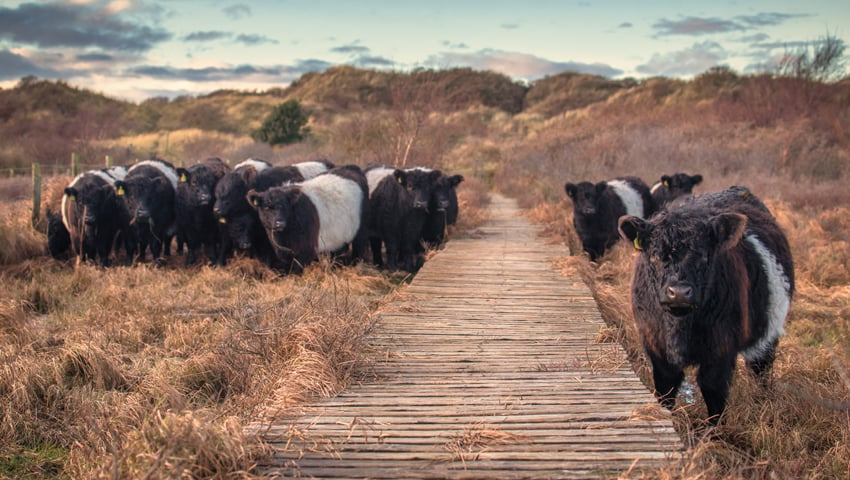Long Compton specialises in private slaughter, but has also maintained the wholesale meat side of the business. The abattoir purchases livestock from within a five mile radius so as to ensure minimum travelling time and therefore incur less stress to the animals.
Small abattoirs, such as Long Compton, are critical to the regeneration of the countryside, because direct and short co-operative supply chains are often important for ensuring the profitability of agroecological and regenerative farming.
Long Compton Abattoir is facing imminent closure because the current operator is retiring, and due to rising costs and a lack of skilled labour.
The abattoir has served Warwickshire, Oxfordshire and Gloucestershire for over 100 years, and once it closes, farmers said they will be faced with a nearly two-hour journey each way instead of 15 minutes.
Local farmer and butcher Nick Francis told the Evesham Journal, “We’re rallying all the help possible to save Long Compton Abattoir. It’s not only vital for our business – losing the abattoir would be a huge blow to the wider local food system.
“Animal welfare is at risk too. The next closest abattoir would involve a journey of over 1 hour and 40 minutes instead of the 15 minutes our animals currently travel.”
£3 million is needed to buy it, and farmers are encouraging people to get in touch, complete a simple online expression of interest, and join the group.
The Save Long Compton Abattoir fundraising bid had reached 220 supporters pledging investment in the first 72 hours, but more pledges are needed to secure the premises.
Jonty Brunyee, representative from North East Cotswolds Farmer Cluster, said, “We are under no illusion that running an abattoir is an easy business. All our remaining small facilities in the region are under threat due to red tape, rising costs and lack of skilled labour. But we believe there is a viable future for Long Compton and there is significant momentum to save and optimise this rural asset.
“Without a thriving local abattoir, our farms, conservation and landscape recovery work, rare breeds, meat retail, food business and rural economy all become less sustainable.”
There is significant momentum to find a solution and the Steering Group is working to attract a combination of private and public funding, via a new private company, to purchase the freehold site and business, and to improve the abattoir for the benefit of all.
At this stage, pledges are not formal commitments to invest, but the group needs to demonstrate the ability to fund the purchase in order to progress to the next stages of negotiation.
John Weaver, farmer and steering group lead, said,’ Our farmer-led group is seeking to attract a combination of private and public funding to purchase the freehold site and business. Equity is to be raised by selling shares via a new private company.”
Long Compton Abattoir is due to close later this month, so expressions of interest are sought urgently.
